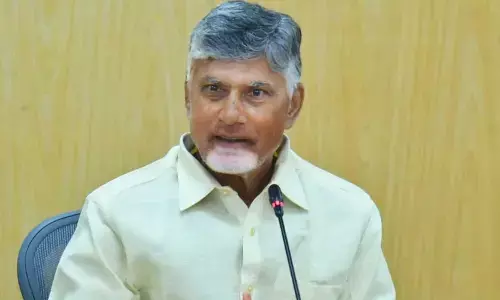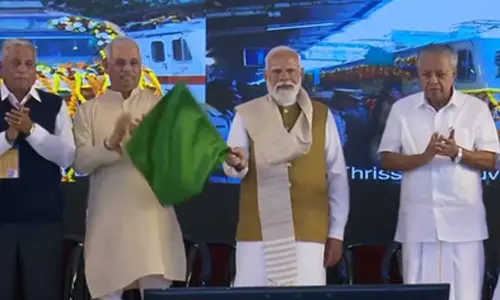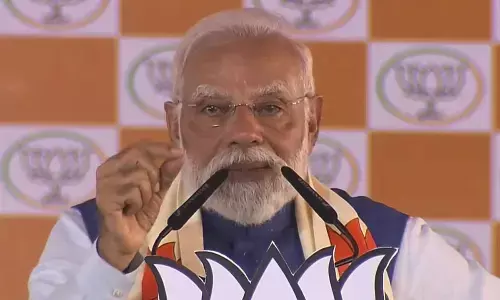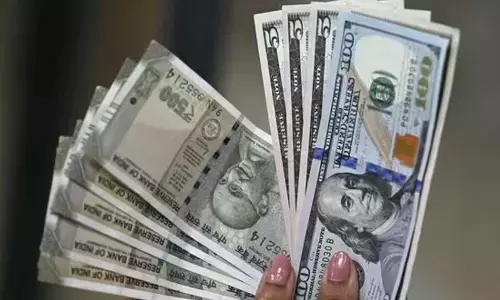Blame not money but electoral system!
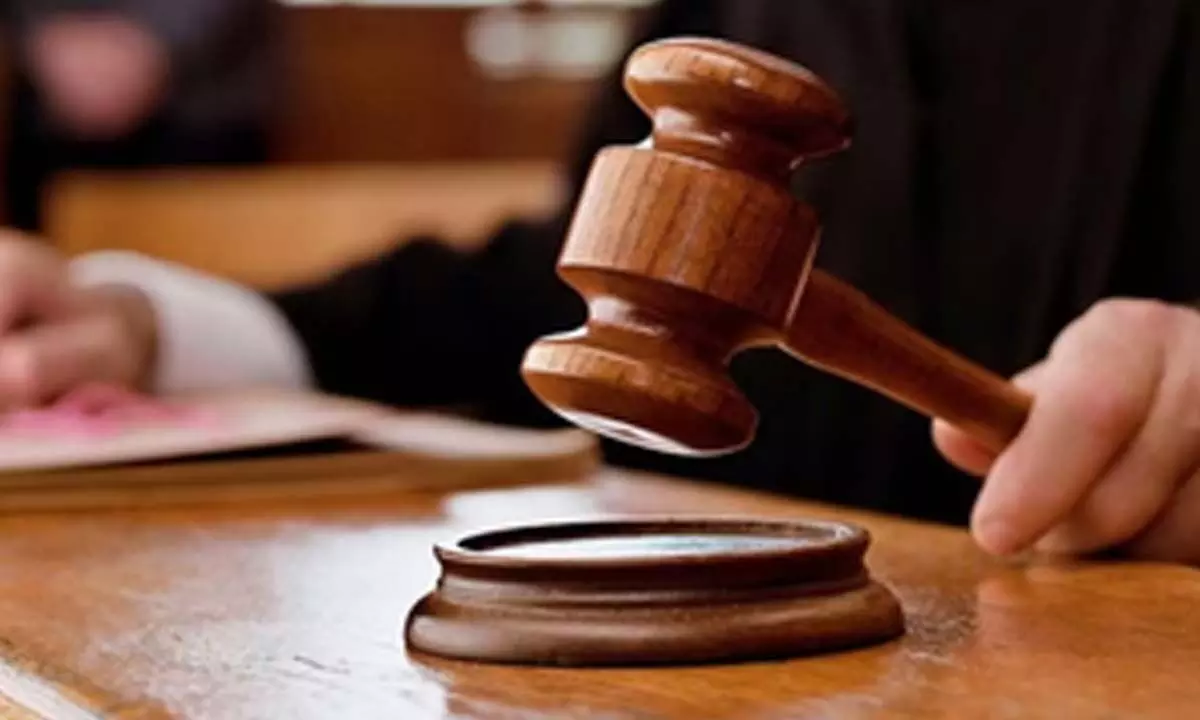
With the State Bank of India on apex court 's orders, opening the pandora's box of slush electoral bonds, the political upheaval in the already surcharged atmosphere has been seen
Hyderabad: With the State Bank of India on apex court 's orders, opening the pandora's box of slush electoral bonds, the political upheaval in the already surcharged atmosphere has been seen. Funnily, the recipient as well as non-recipient parties are blaming each other for promoting money culture in elections.
Of the Rs.18,000 and-odd crore received in the form of electoral bonds, all major political parties have a share, the ruling BJP being on top with a share of about Rs.6,000 crore. The argument in favour of the bonds is that it ensures transparency LEGAL because givers and receivers of funds transact business via bank, thereby making the transactions quite legal and transparent. On the other hand, advocates of fair and free elections allege that it is nothing but a game of give and take. Called quid pro quo in legal parlance, it is nothing but a corrupt and unfair practice which renders the entire electoral process illegal.
However, there is no water in both these arguments. Consider for a while that the electoral bonds are not there, as was the case until 2017, then how the money was given to individuals and parties? Obviously, it was through hard cash, rather unaccounted or black money. In short, in both situations it is money which is given and accepted. And money is money whether black or white. It does the same thing to whatever it is put to use.
So the real problem is not money, but it is how much a party gets. The electoral bonds stipulate that only those parties which had secured at least one percent of vote share in the previous election, shall be eligible for receiving funds through the electoral bonds. Now, out of more than 3,000 registered parties there are hardly two dozen which had secured one percent or more as vote share. Only these parties can receive the electoral bonds. Others, with just one or two or no members in the legislature don’t qualify for the white money donation, called electoral bonds. So the left out parties cry hoarse! Among those who received funds through electoral bonds, but are much less than others, they too, complain because of disparity! In fact, givers of electoral bonds have their own logic such as, the strength of a party in the legislature, overall vote share of a party and above all, the proposed receiver's ability to do the favour in return!
Seen from this angle, it is the money power which dominates electioneering. Money being a medium of exchange, can buy everything that is required to win an election. Be it vehicles, propaganda, food and liquor, vote for cash deals, lavish gatherings, road shows, special planes, muscle power and what not.
Thus, the real culprit is money. If we really want to bring in meaningful democracy, we will have to devise a mechanism that will ensure little role of money. One such mechanism could be overhauling the election mechanism by drastically reducing the size of a constituency and increasing the number of elected representatives. One nation, one election should see that while top 5,000 high vote getters become MPs, the other elected persons with lower margins become MLAs, ZP members, taluka and village panchayat members, including municipalities. About 10% of lowest vote getters can be kept as substitutes in each category so as to fill up any future vacancies on account of death, resignation of a member. In short, it is feasible to drastically reduce the money power in elections, provided there is will.
TSHC constitutes committee to oversee temple celebrations
Justice N V Shravan Kumar of the Telangana High Court constituted a six-member committee to oversee smooth and harmonious celebrations of the forthcoming ‘dhwaja sthambham’ and temple ‘pratista’ programme of the Swayambhu Siva Lingam at Abdullapurmet mandal, Ranga Reddy district.
The petitioner, the ex-sarpanch of Abdullapurmet, had complained that one Chettigari Anjaneyulu Goud brought to notice of the Endowments Commissioner that the proposed dates of religious ceremonies were not auspicious. Therefore, the AC sought advice of Sharadha Peetham Shankaracharya. The court after hearing rival contentions constituted a six-member committee.
Delhi HC on ‘be the beer’ trade mark
The Delhi HC recently ordered removal of the ‘Be the Beer’ trademark in a plea filed by ‘The Beer Café.’ The petitioner had contended that his trademark was used since a long time and the respondent had just copied it to look deceptively similar to his trademark. The court ordered the Registrar of Trademarks to remove respondent’s trademark from the register and adjourned the hearing after four weeks.
No police security if no real threat: MP High Court
A single judge bench of Justice Anand Pathak of the Madhya Pradesh High Court ordered withdrawal of police security of businessmen who have been enjoying protection for 12 years without any payment or justification. The matrix of the case was that in 2005, son of the MD of Heeralal Estate and Constructions Pvt Ltd company, was assaulted by some miscreants. Following the incident, the father sought police protection which was granted. However, even after the threat perception had reduced, the protection continued and no payment was made in spite of direction to this effect. Thus, the police protection without any payment was enjoyed by the respondent for over 12 years.









